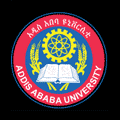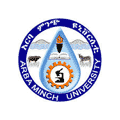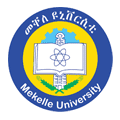Universities in Ethiopia

Addis Ababa University
Addis Ababa, Ethiopia
Addis Ababa University is an institution of higher education, based in Ethiopia. It was founded in 1950. The school operates seven campuses, six of which are based in Addis Ababa, but it also runs branches in a number of cities around the country. Addis Ababa University runs programs in various fields, which include Health Sciences, Law, Journalism and Communication, Social Work, Development Studies, Governance Studies, Ethiopian Studies, and others.

Arba Minch University
Arbaminch, Ethiopia
Arba Minch University is a research university based in Arba Minch, Ethiopia. The school is one of the respected institutions in the country, and it was officialy recognized as a university in 2004. Currently the school offers both undergraduate and graduate programs. It is organized into the following colleges: College of Agriculture, College of Social Sciences and Humanities, College of Natural Sciences, College of Medicine and Health Sciences, College of Business and Economics, and the Arba Minch Institute of Technology. The University has embarked on a journey of expansion, for which... See full description.

Mekelle University
Mekelle, Ethiopia
Mekelle University was established in 2000 through the merger of Mekelle Business College and Mekelle University College. Currently, it is an autonomous institution of higher education, located in the town of Mekelle in Tigray region of Northern Ethiopia. The university offers degrees through the following faculties: College of Dry Land and Agriculture; College of Business and Economics; College of Humanities and Languages; College of Natural and Computational sciences; College of Law and Governance; Institute of Pedagogical sciences; College of Veterinary Science; College of Health... See full description.
Universities in Ethiopia by City:
Addis AbabaArbaminchMekelleAbout universities in Ethiopia
Up until the turn of the 21st Century, higher education in Ethiopia was not always a top priority of the government or the people, and although recent years have seen some promising results, including a significant increase in enrollment, the country still faces several educational obstacles. For example, the illiteracy rate in the country is approximately 50 percent—a major improvement from past decades, but there’s still much work to do. This statistic cannot be blamed necessarily on the primary and secondary schools in the country, as most non-readers reside in the country’s rural areas and do not attend school. Even though public education is free for every student, children in these non-urban areas are often withheld from formal schooling by their parents due to economic concerns—a fear that the child’s absence will inhibit the family’s ability to make ends meet.
Another obstacle facing the Ethiopian higher education system is the shortage of qualified teachers. Those students with full access and the ability to pay for a university education often emigrate from the country upon graduation seeking increased economic opportunity. This not only creates a shortfall of competent teachers, but a lack of qualified professionals in general, including areas such as medicine and dentistry. Studies show that in 2010 there were more Ethiopian trained doctors living in Chicago, Illinois than there were in the entire country of Ethiopia.
Despite the challenges that face this often fragile country, the system of higher education continues to evolve and improve. The system as a whole is the responsibility of the Ministry of Education, and the universities are governed by state-appointed members that comprise the Higher Education Institutions Board (HEIB). This board appoints an academic commission at each institution that is responsible for creating the various university programs. Universities recruit their own faculty and staff based on certain criteria, and the instructors retained are rigorously assessed at the end of each semester (twice a year) by the department head, their colleagues and students.
The majority of universities in Ethiopia are operated in the country’s urban district, and they offer a wide range of programs leading to both bachelor and master-level degrees. The more established universities also offer doctorate-level degrees, along with specialized programs in fields such as law, pharmacy, medicine, dentistry and veterinary medicine.
In recent years, research and development has become a major focus in Ethiopia, and there are now six well-equipped research centers assisting in this function. Both faculty and graduate-level students are involved in these programs, making breakthroughs over the years in fields that include agriculture, geophysics, education and pathobiology.
Even with the migration of many well-educated Ethiopian graduates, as of 2010 over 75 percent of the instructors in the country’s institutions of higher learning possessed a Master’s Degree or PhD, with the rest holding a bachelor degree. Instructors split their time between instruction and research, at a rate of 75% and 25% respectively.
With regard to education, the number one goal of the Ethiopian government is to create greater access to the country’s educational system, particularly for those students in rural areas. They hope to attain this by expanding their distance education programs and by increasing the amount of money earmarked for higher education each year, an amount that currently sits at 3 percent of GDP.
Another obstacle facing the Ethiopian higher education system is the shortage of qualified teachers. Those students with full access and the ability to pay for a university education often emigrate from the country upon graduation seeking increased economic opportunity. This not only creates a shortfall of competent teachers, but a lack of qualified professionals in general, including areas such as medicine and dentistry. Studies show that in 2010 there were more Ethiopian trained doctors living in Chicago, Illinois than there were in the entire country of Ethiopia.
Despite the challenges that face this often fragile country, the system of higher education continues to evolve and improve. The system as a whole is the responsibility of the Ministry of Education, and the universities are governed by state-appointed members that comprise the Higher Education Institutions Board (HEIB). This board appoints an academic commission at each institution that is responsible for creating the various university programs. Universities recruit their own faculty and staff based on certain criteria, and the instructors retained are rigorously assessed at the end of each semester (twice a year) by the department head, their colleagues and students.
The majority of universities in Ethiopia are operated in the country’s urban district, and they offer a wide range of programs leading to both bachelor and master-level degrees. The more established universities also offer doctorate-level degrees, along with specialized programs in fields such as law, pharmacy, medicine, dentistry and veterinary medicine.
In recent years, research and development has become a major focus in Ethiopia, and there are now six well-equipped research centers assisting in this function. Both faculty and graduate-level students are involved in these programs, making breakthroughs over the years in fields that include agriculture, geophysics, education and pathobiology.
Even with the migration of many well-educated Ethiopian graduates, as of 2010 over 75 percent of the instructors in the country’s institutions of higher learning possessed a Master’s Degree or PhD, with the rest holding a bachelor degree. Instructors split their time between instruction and research, at a rate of 75% and 25% respectively.
With regard to education, the number one goal of the Ethiopian government is to create greater access to the country’s educational system, particularly for those students in rural areas. They hope to attain this by expanding their distance education programs and by increasing the amount of money earmarked for higher education each year, an amount that currently sits at 3 percent of GDP.

